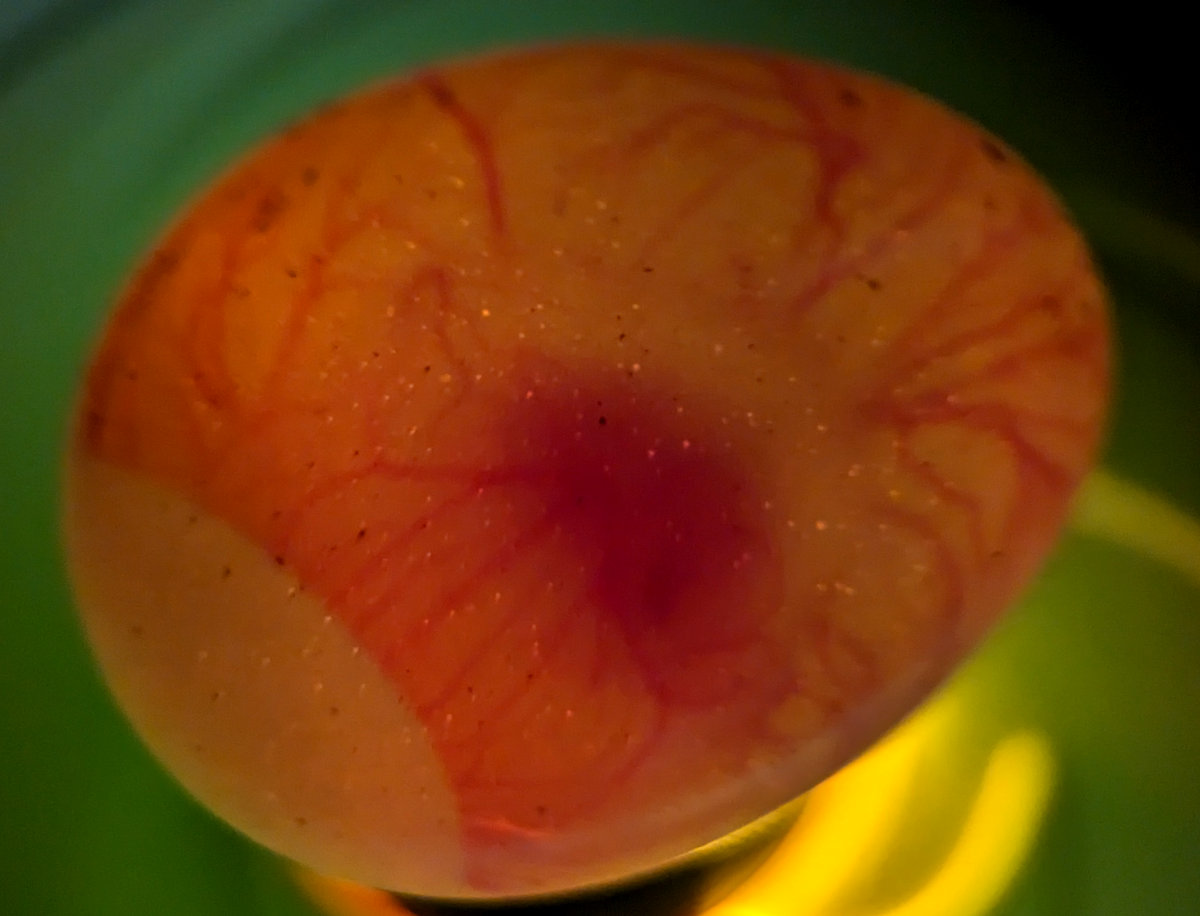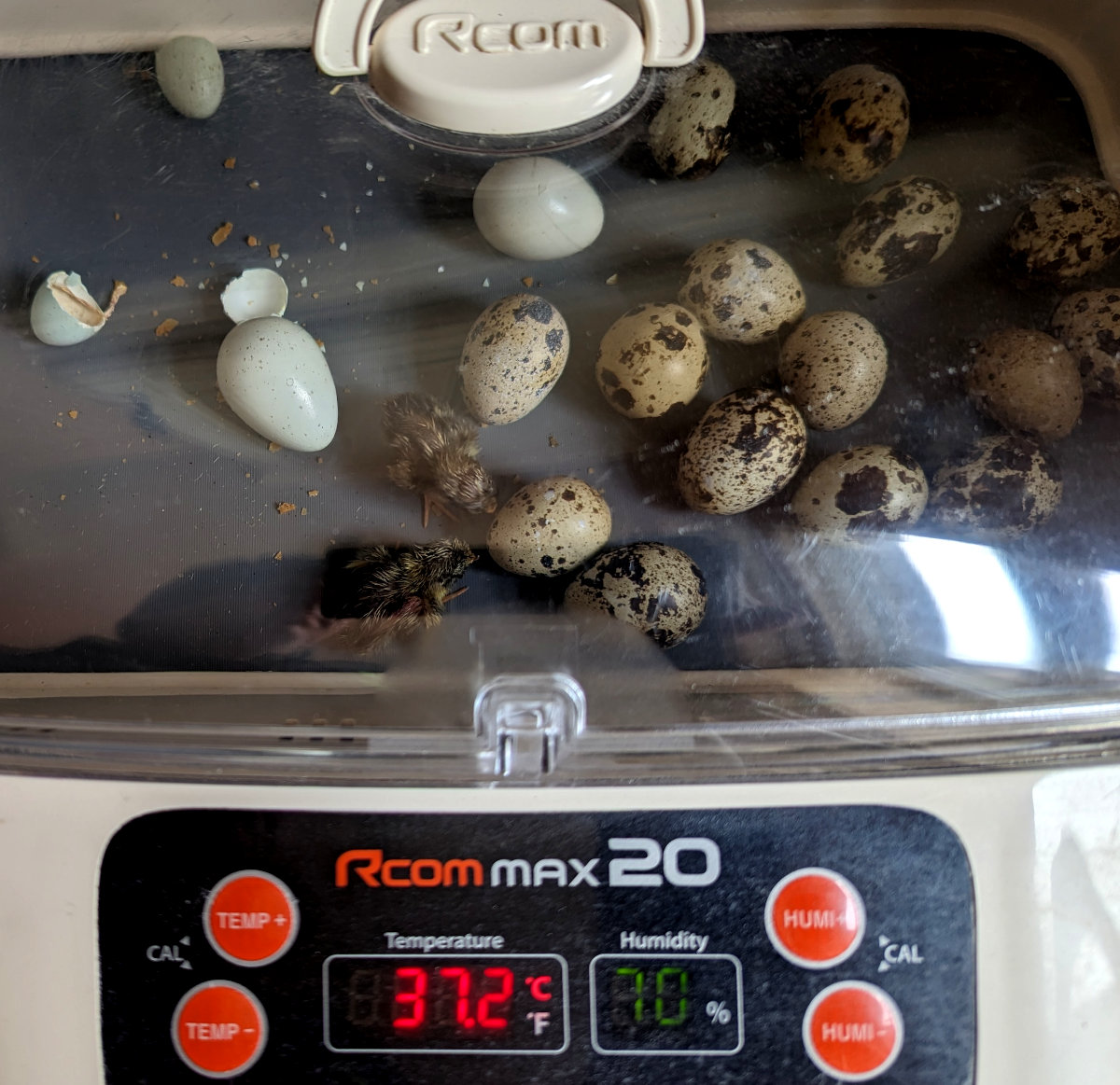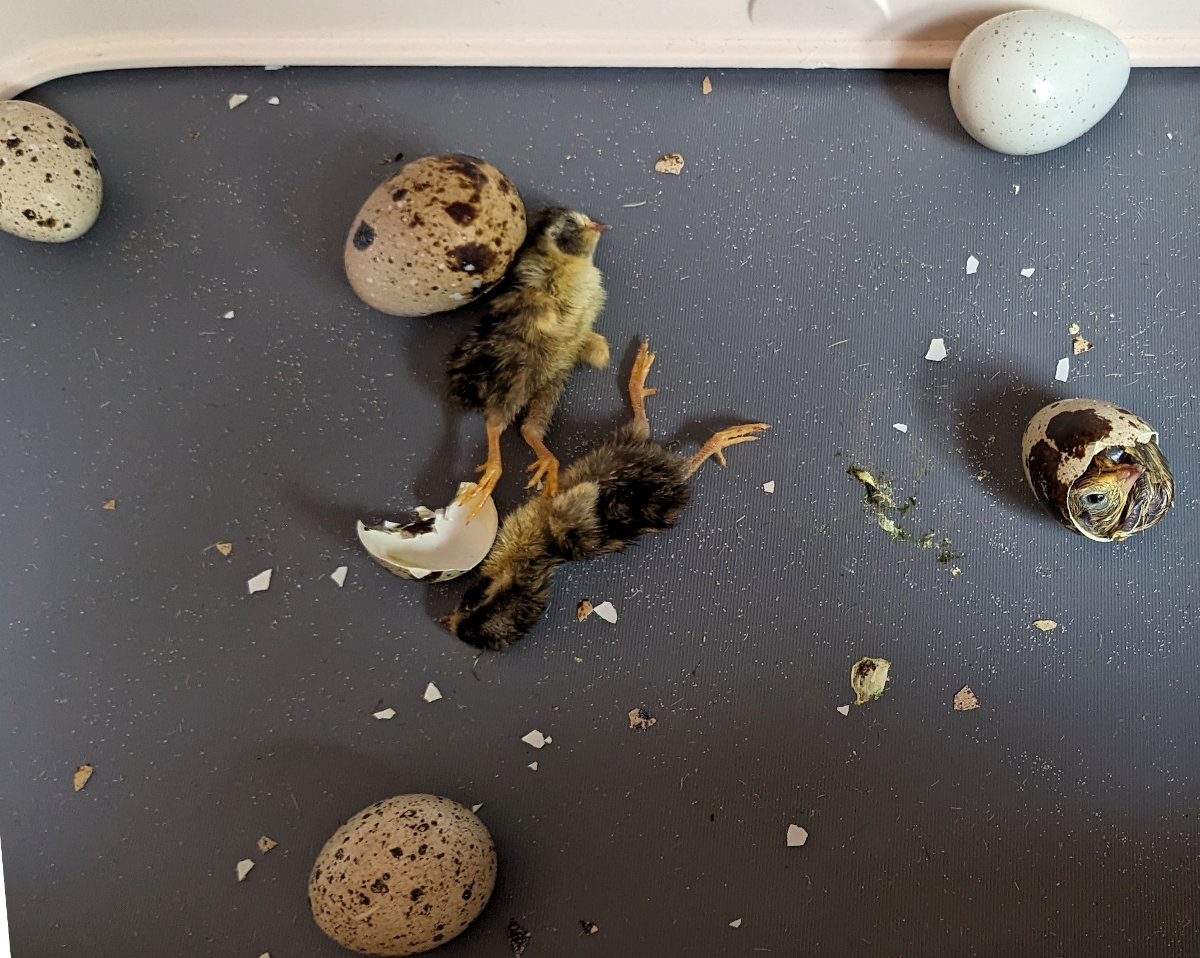What percentage of quail eggs will hatch? Hatch rate calculator included to test your own results.

The percentage of quail eggs that will hatch depends on a number of factors, including the quality of the quail eggs, the incubation conditions, and your experience.
The average hatch rate for Quail eggs:
In good conditions, Quail eggs have a hatch rate of around 70–85%. With perfect handling, equipment, and breeder health, some people push it into the 90%+ range.
Realistic expectation for your hatch rate:
- Home incubation: 60–85%
- Experienced breeder setup: 80–95%
- Shipped eggs: 40–70% (shipping knocks them around and lowers viability)
Calculate your quail egg hatch rate.
Put in your own number to see how you are doing.
Below: A hatch is underway.

I have had my fair share of disastrous hatches over the years and one of my recent ones was the worst yet, I got just 9 quail chicks from 60 eggs. This particular hatch was all from eggs that had been shipped so it was impossible for me to know exactly how old they were and how they had been treated.
Below: June 2023, one of my worst ever hatches as a poultry keeper.
I have found it is also a little breed dependant, some types of quail breeds have poorer hatch rates than others.
The big factors that can affect the hatch rate of Quail eggs:
Healthy, well-fed breeding birds produce stronger, more viable eggs. Overcrowding, poor diet, or too few males can drop fertility fast.
- The quality of the eggs: The best eggs for hatching are those that are fresh and healthy. They should be firm and have a smooth, even shell.
- Shipping: Quail eggs that have been posted or shipped will have a much lower hatch rate.
- Poor handling: Travel and rough handling negatively affects hatchability.
- The health of the parents: Parent stock that is in poor health or lacking nutrients in the diet will produce many more nonviable eggs.
- The incubation conditions: The ideal temperature for incubating quail eggs is 99.5 degrees Fahrenheit. The humidity should be around 50% for the first 14 days, and then increased to 65-75% for the final 3 days.
- The experience of the Keeper: If you are new to incubating quail eggs, it is a good idea to start with a small number of eggs. This will give you a chance to learn the process and troubleshoot any problems that may arise.
Factors such as egg fertility, egg quality, and the incubation conditions play a crucial role in determining the hatching success rate.
It's also worth mentioning that individual variation can occur, and there is no guarantee that every quail egg will hatch successfully, even under optimal conditions.
It's important to note that achieving a higher hatching rate requires proper care and management throughout the incubation process.
Below: Not every quail chick that emerges from the egg will make it out of the incubator.

This includes maintaining appropriate temperature and humidity levels, ensuring the eggs are turned regularly, and providing a clean and suitable environment.
Here are some tips for improving the hatch rate of quail eggs:
- Choose fresh, healthy eggs: The best eggs for hatching are those that are less than 7 days old.
- Set up the incubator correctly: Make sure that the temperature and humidity are correct.
- Turn the eggs regularly: Quail eggs should be turned 3-4 times a day.
- Candle the eggs: Candling quail eggs is the process of shining a light through the egg to check for development. This can help you identify any eggs that are not viable.
- Be patient: It takes about 18 days for quail eggs to hatch.
With a little care and attention, you can expect to have a successful hatch of quail eggs.